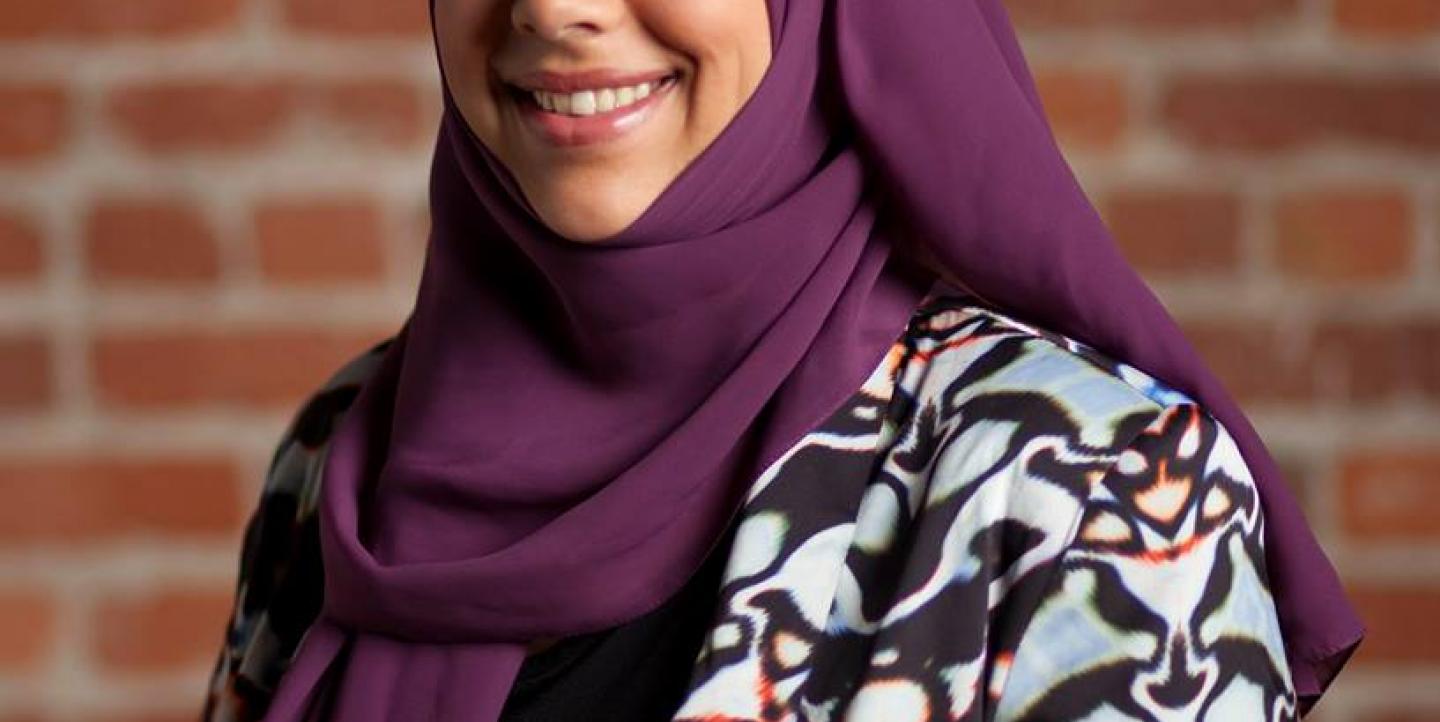Each month, IJNet features an international journalist who exemplifies the profession and has used the site to further his or her career. If you would like to be featured, email a short bio and a paragraph about how you have used IJNet here.
Award-winning journalist, blogger and author Ethar El-Katatney remembers loving to tell stories from a young age.
“I've always loved to write; growing up, I would tell people I was going to be an author,” she said. “But I'm Egyptian, so journalism was never really a career that a lot of women aspire to, or that families want their kids to do, because of the politics, the danger, etc.”
As an undergraduate, El-Katatney studied business administration at the American University in Cairo. After a serendipitous event, however, she became increasingly involved with the student newspaper, eventually becoming editor-in-chief.
“Kofi Annan was coming to campus [to speak], and I was there,” she said. “I called up a good friend of mine who worked at the paper and she was panicking — the journalist who was supposed to go was late and they wouldn’t let him in. I said ‘Oh don't worry, I’ll write something for you.’ I remember walking back and seeing everybody holding the paper with my story on the front page, and that was it.”
She went on to work for Egypt Today and international outlets like CNN and MSNBC, earning accolades like the Samir Kassir Award for Freedom of the Press.
Using IJNet, she’s found fellowships with the World Press Institute and East-West Center, as well as several conferences. The WPI fellowship gave her the opportunity to appear on Charlie Rose in 2011, where she discussed post-Arab Spring Egypt.
Now an executive producer at AJ+ in San Francisco, El-Katatney spoke with IJNet about crafting compelling narratives, her favorite story she’s worked on and more:
IJNet: You’ve worked across several different mediums and platforms throughout your career. What’s the one thing that stays consistent throughout all those things?
El-Katatney: Your storytelling. I went back to school to do a master’s in television and digital journalism, and most of the technical skills I learned are obsolete, because the cameras and the editing software we use are changing so fast. It's really about how you tell your story, whether that's in 5,000-word articles, documentaries, 500-word blog posts, eight-sentence videos, Vines... It's about good stories and how you make people care about those stories. That's something that really hasn't changed, whether it was at my university paper and trying to think of interesting stories on campus, or right now when I'm like, ‘How do I tell Trump's immigration platform and how it's affecting the humans and the characters?’
AJ+ has always been really good at instantly grabbing the viewer’s attention with your videos, and I don't know how you do it, but it's really well done.
We used to have something called the five-second rule, which is that in five seconds you had to get someone's attention. It’s literally now three seconds. So in three seconds you have to either have told someone the story or gotten them to watch — and assume everybody is watching with sound off and no one's making it through more than 20 percent of the story.
Which of your stories are you most proud of?
I think my favorite story is actually one of my earliest stories for Egypt Today. I did a story on a leprosy village in Egypt. It was basically this community in the 60s, when leprosy was still a contagious disease. Everybody who had leprosy was rounded up and placed in this prison for their whole lives.
I remember talking to this one man, he grabbed my hand and said, ‘I really want you to tell everybody what happened to us; don't let us just die here.’ I think that for me was one of my favorite stories. Anything I've done on older people that looks at the impact of their lives has always been my favorite.
At AJ+, I’d say what we've done on the Syrian refugee crisis over the last year. I think what we've done to humanize and make people care about this tragedy that’s so vast, all the different facets of it and what is accurate — that’s been one of my favorites.
What’s the biggest piece of advice you would give to aspiring journalists?
Having something that you are particularly passionate about really helps distinguish yourself. When I look at resumes, I'm already assuming this person can shoot, this person can edit, this person can produce video, this person can write. What really makes people stand out for me is a particular interest, a particular passion or expertise. Everyone I’ve hired in the last year, they’re very into indigenous issues, the environment, technology, science, social justice… I think finding that and nurturing it gives your stories that passion and that uniqueness that makes it stand out amongst this deluge of content.
I'm also generally a person who always seeks opportunities and new things, because you never know what you could learn or who you could meet. I definitely think that you should never not apply for anything. You can always learn more and be exposed to more.
I think journalism is just really difficult to crack. And it's scary for everyone. Even now, when I came to the United States, I thought, ‘This will be a nice pace of life for a year.’ But then look at the election cycle and what you guys are dealing with. It's always a difficult career, and you've got to really have a passion for it. So you should seize opportunities where you can to make you better and relevant and able to advance and grow.
Image courtesy of Ethar El-Katatney.

